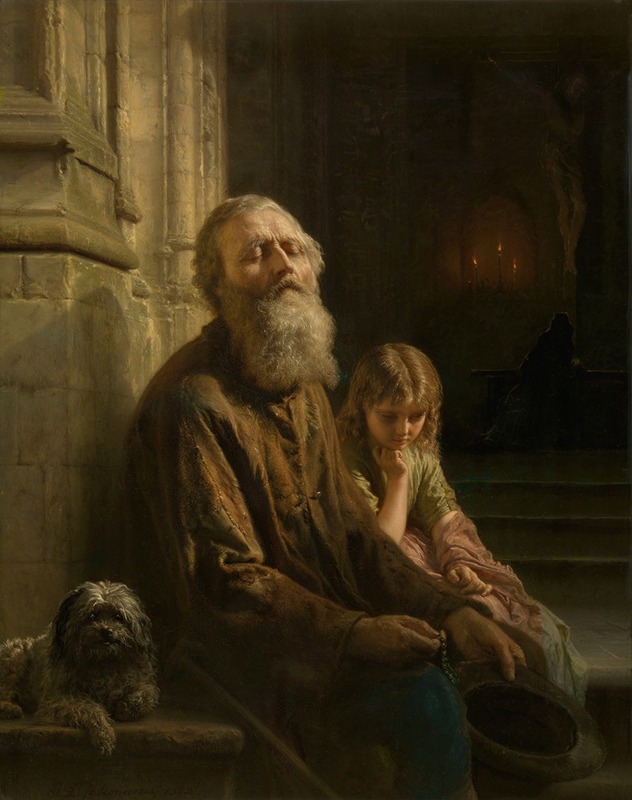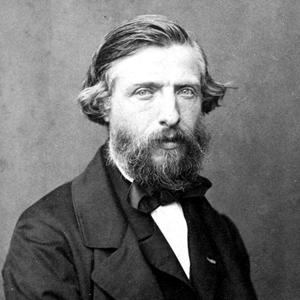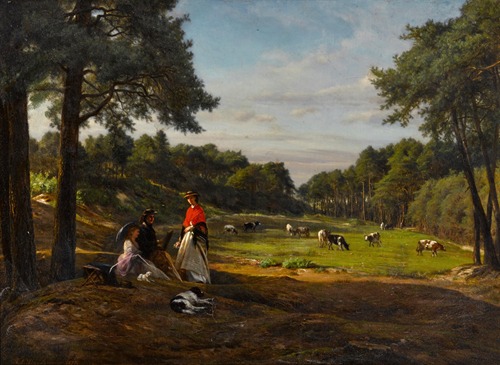

Josephus Laurentius Dyckmans or Jozef Laurent Dyckmans was a Belgian painter mainly of genre scenes and portraits whose painstakingly detailed pictures earned him the nickname 'The Belgian Gerard Dou'.
Josephus Laurentius Dyckmans was born in Lier where he received his first artistic training from the local painter Melchior Gommar Tieleman. Dyckmans started his career as a decorative painter in his native town. His local patrons recognized his talent and after he had won all the first prizes at the local drawing school, the Lier city government awarded him an allowance that permitted him to continue his studies at the Academy of Fine Arts of Antwerp. He studied at the Antwerp Academy from 1834 to 1835 and worked in the workshop of Gustaaf Wappers, one of the leading Romantic and history painters of Belgium at the time.
Dyckmans became a frequent contributor to the local salons (art exhibitions) early in his career. He sent in 1834 his first contribution to the Antwerp salon where his painting A confession of love was well received. In 1836 his Game of checkers won the silver medal at the Brussels salon. His 1838 submission of a Vegetable market to the Ghent salon was a sensation and was subsequently exhibited in Antwerp in 1840 and The Hague in 1841. In The Hague the painting was awarded a silver medal. He exhibited at the Royal Academy of Arts in London in 1846, 1860, 1863 and 1869 and participated in the Universal Exhibition in Paris in 1867.
In 1841, Dyckmans undertook a journey to Paris and the Netherlands. In November of that year he was appointed professor of painting and perspective at the Antwerp Academy. On 8 January 1847 he became a corresponding member of the Belgian Royal Academy. As he was of a timid disposition he did not participate in the meetings of the Belgian Royal Academy and never became an active member. He left his teaching post at the Antwerp Academy in 1854. Dyckmans is reported to have worked in London some time during his career.
Dyckmans married in 1847 and had two daughters. Despite his international success, Dyckmans lived a relatively secluded life alternating between his spacious house in Antwerp and his small country retreat in Kalmthout, near Antwerp.
Dyckmans received many official awards. The Belgian state made him a knight in the Order of Leopold in 1851 and later in 1870 an officer in the Order of Leopold.
Dyckmans had many students including from Belgium and abroad such as Franz Vinck, Jan Geeraerts, Ernst Stückelberg, Wilhelm Busch, Paul Weber and Emil Hünten.

